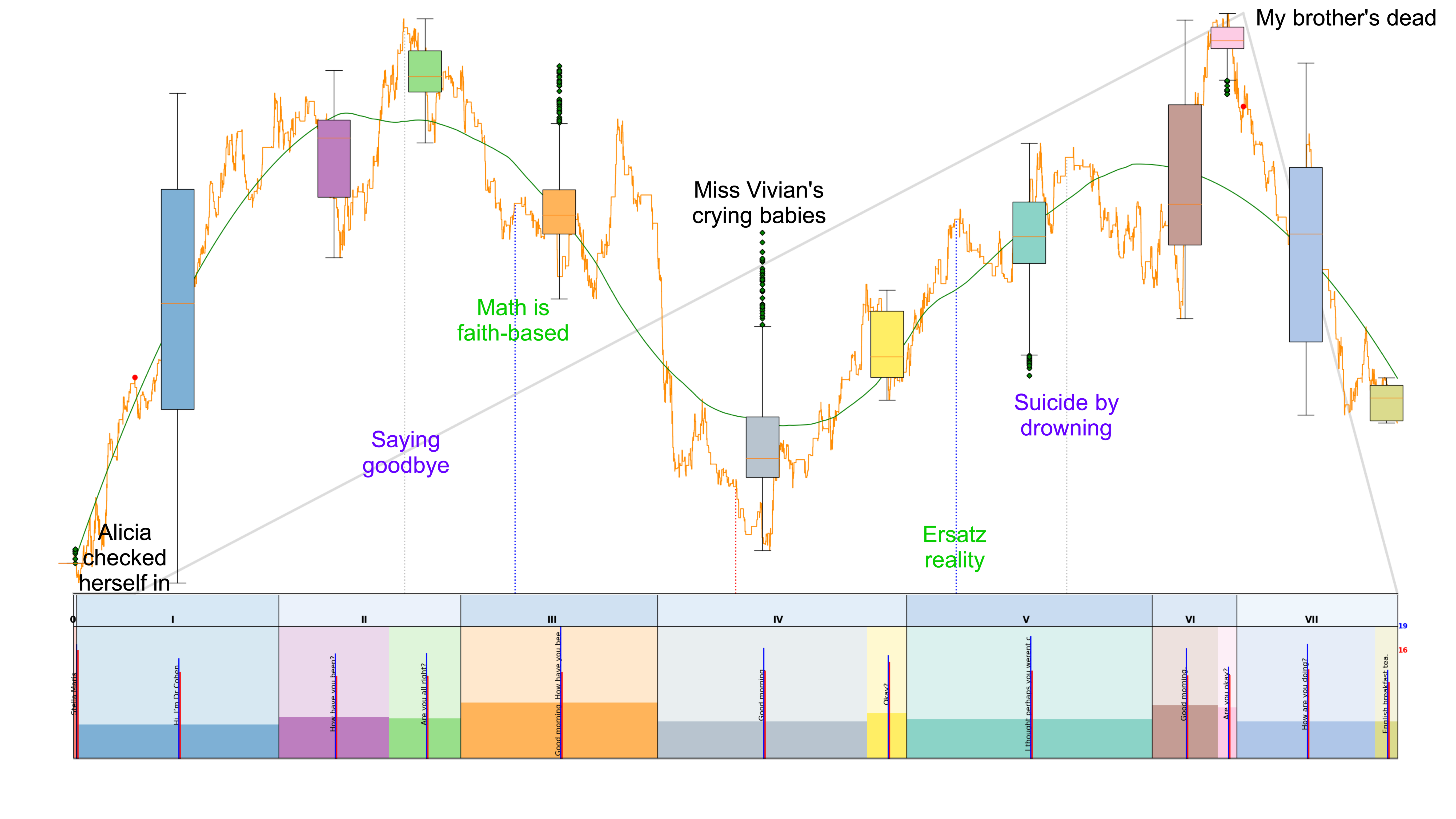Agenda
- Why We're Here / Roundtable Rules
- Introduction to Literary Forensics
- Group Discussion
- Further Study
Why We're Here
We writers want to improve our craft
by reading like a writer
We learn from each other
using Literary Forensics
Roundtable Rules
Always refer back to the book
Practice active listening & serendipity
Every feeling and observation is valid...
but not every conclusion
Always refer back to the book
Reading Teaches Writing
Meet today's author: Cormac McCarthy (1933-2023)
- Author of 12 Novels
- The Orchard Keeper (1965), Outer Dark (1968), Child of God (1973)
- Suttree (1979), Blood Meridian (1985), All the Pretty Horses (1992)
- The Crossing (1994), Cities of the Plain (1998), No Country for Old Men (2005)
- The Road (2006), The Passenger (2022), Stella Maris (2022)
-
- In the late 1990s McCarthy moved to Santa Fe, New Mexico, a decade after he had been invited by his friend physicist Murray Gell-Mann to join the Santa Fe Institute. He made SFI his second home, exchanging ideas with scientists and scholars and writing on his Olivetti manual typewriter. He wrote SFI’s Operating Principles, and also became its Lifetime Trustee and Senior Fellow of the Institute. His last novels, The Passenger and Stella Maris, delved into the ideas of mathematics, physics, and analytical themes he explored with his colleagues at SFI.
- McCarthy's 2006 play The Sunset Limited is a two-hander with one character trying to talk the other out of suicide.
What do you feel?
What in the book elicited that feeling?
Every feeling and observation is valid...
but every conclusion should be questioned
We practice serendipity
- nothing is too crazy
Always refer back to the book
What do you notice?

Writing Stella Maris (Star of the Sea)
- In a 2009 interview, McCarthy said that he had been "planning on writing about a woman for 50 years."
- Stella Maris is a companion novel to The Passenger. It was published by Knopf on December 6, 2022, one month after its companion novel The Passenger and was the final novel published before McCarthy's death on June 13, 2023.
- The entire novel is set in 1972 in Black River Falls, Wisconsin, at the titular Stella Maris, "a non-denominational facility and hospice for the care of psychiatric medical patients," as stated before Chapter I (the only page that isn't dialogue).
- Black River Falls is also the origin of Michael Lesy's 1973 collection of newspaper articles and photographs from 1890 - 1910 entitled Wisconsin Death Trip. McCarthy was known to have given copies of Wisconsin Death Trip to friends.
Stats & Background
- Marketing: Psychological Literary Fiction, Westerns, (Family) Saga Fiction, Literary Fiction, Psychological Thrillers
- Genre: Realistic Historical Literary Medium-Form Mini-Plot
- Print Pages: 208; Word count: 51,389;
Reading Grade: 6th
Avg. wds/sent.: 7.11; Lexical Density: 39.93; Flesch Reading Ease: 80.38 - POV: Alicia
Person: None; Tense: None - Publish date: December 6, 2022
- Publisher: Knopf
- Audio book length: (4 hours 54 mins); Narr. Julia Whelan, Edoardo Ballerini

